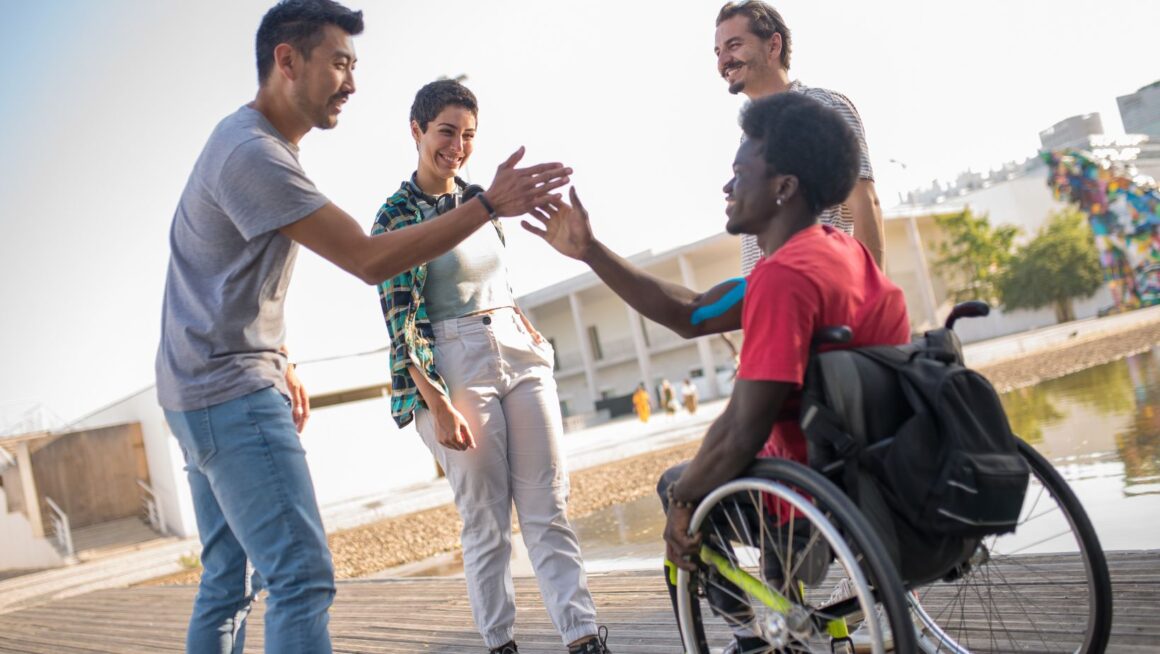In our society, empowering individuals with disabilities is crucial for fostering inclusivity and independence. This empowerment often comes from a robust support system designed to meet their unique needs, enabling them to navigate daily challenges more effectively. Such systems encompass a wide range of resources, including adaptive technologies, community support, educational programs, and personalized healthcare plans. Let’s explore how these support mechanisms work collaboratively to enhance the autonomy and quality of life for people with disabilities.
Table of Contents
ToggleUnderstanding the Importance of Comprehensive Support
The foundation of empowering individuals with disabilities lies in understanding and addressing the diverse needs that they face. This involves more than just physical assistance; it includes emotional and social support, access to education, and opportunities for employment. At the heart of these efforts are Disability Services, which aim to provide a cohesive, multifaceted approach to supporting individuals across various aspects of life.
Navigating Daily Life
Effective support systems help individuals perform daily tasks, from personal care to household chores. Technologies like voice-activated devices, wheelchair-accessible home modifications, and service animals play a significant role in facilitating these daily routines. Moreover, transportation services equipped for accessibility allow greater freedom and reduce dependence on others for mobility.
Social Integration and Community Participation
Community programs that encourage social interaction and participation are vital. These might include recreational sports teams, art classes, or social groups specifically geared toward individuals with disabilities. Participating in these activities can significantly enhance social skills, self-esteem, and mental health, fostering a sense of belonging and community.
Education and Employment: Keys to Independence
Education and employment are critical areas where individuals with disabilities seek independence and self-sufficiency. Tailored educational programs and inclusive employment policies can drastically improve the quality of life for these individuals, providing them with the skills and opportunities to contribute to society meaningfully.
Educational Programs
Adaptive educational tools and specialized learning methods can accommodate various learning disabilities and physical challenges. Schools and educational institutions are increasingly using technology to create more inclusive environments that cater to a broad spectrum of needs, helping students with disabilities achieve academic success.
Workplace Accommodations
Employment not only provides financial independence but also improves self-worth and personal fulfillment. Companies are now more aware of the need to create inclusive workplaces that offer reasonable accommodations, such as flexible working hours, ergonomic workspaces, and assistive technologies. These accommodations help in harnessing the unique talents of individuals with disabilities, promoting diversity and innovation within the workforce.
Healthcare and Personal Well-being
Healthcare is another pillar crucial to supporting individuals with disabilities. Access to medical professionals who understand the complexities associated with various disabilities can lead to better health outcomes and a higher quality of life.
Specialized Healthcare Services
Regular access to healthcare professionals who specialize in treating patients with disabilities can make a significant difference.

These experts are trained to offer more personalized care and are familiar with the nuances of various conditions, which helps in managing health more effectively.
Mental Health Support
Mental health is as crucial as physical health, and individuals with disabilities may face increased risks of depression and anxiety. Counseling services, support groups, and therapy sessions tailored to their needs can provide the necessary emotional support, enhancing overall well-being.
Technology and Innovation: Enhancing Accessibility
Technological advancements have revolutionized support systems for individuals with disabilities. From mobility aids to learning apps, technology has the power to break barriers and create more inclusive environments.
Assistive Technologies
Technologies such as screen readers for the visually impaired, speech recognition software for those with mobility issues, and hearing aids equipped with Bluetooth are examples of how technology can aid daily functioning and communication.
Smart Home Devices
Smart home technology can empower individuals by allowing them to control various aspects of their home environment with minimal physical effort. Automated systems can control lighting, temperature, security, and more, all integrated via smartphone apps.
Legal Rights and Advocacy
Understanding and advocating for the legal rights of individuals with disabilities is essential for protecting these rights and promoting fairness and equality. Legislation such as the Americans with Disabilities Act (ADA) in the United States provides a framework for accessibility and equal opportunity.
Advocacy Groups
Advocacy groups play a pivotal role in raising awareness, shaping policies, and providing resources and support to individuals with disabilities.

These organizations are instrumental in driving change at both the community and national levels.
Legal Assistance
Legal assistance can help individuals with disabilities and their families navigate the complexities of the legal system to ensure their rights are protected. This includes assistance with discrimination cases, access to benefits, and more.
Final Thoughts
Empowering individuals with disabilities through comprehensive support systems is vital for fostering independence and ensuring that everyone has the opportunity to lead a fulfilling and autonomous life. By integrating education, employment, technology, healthcare, and legal support into these systems, society can move towards a more inclusive and equitable future. Let’s continue to advocate for and implement support mechanisms that uphold dignity, foster independence, and celebrate the diverse capabilities of all individuals.



